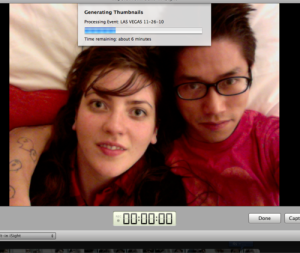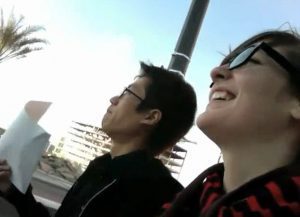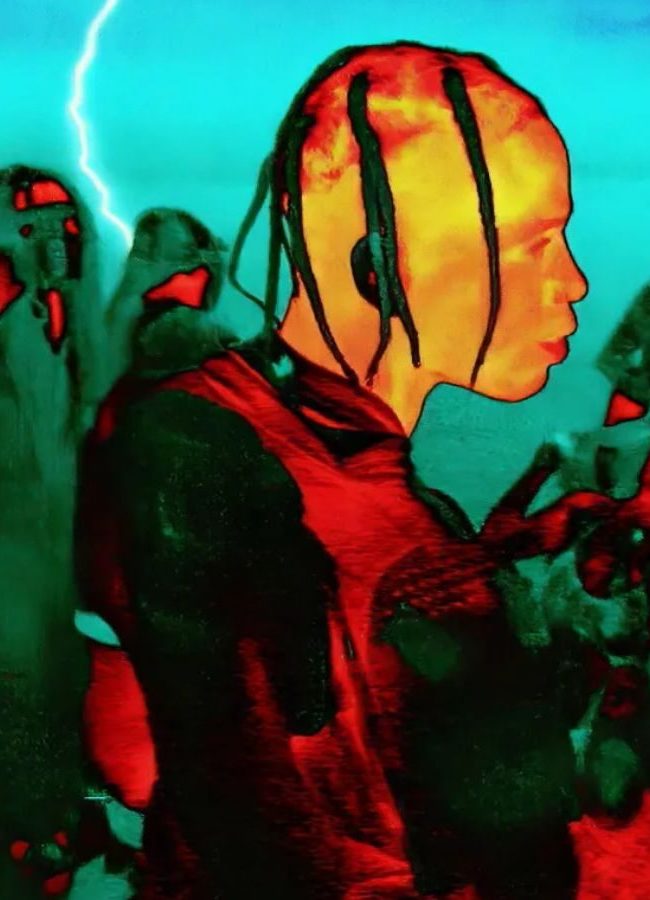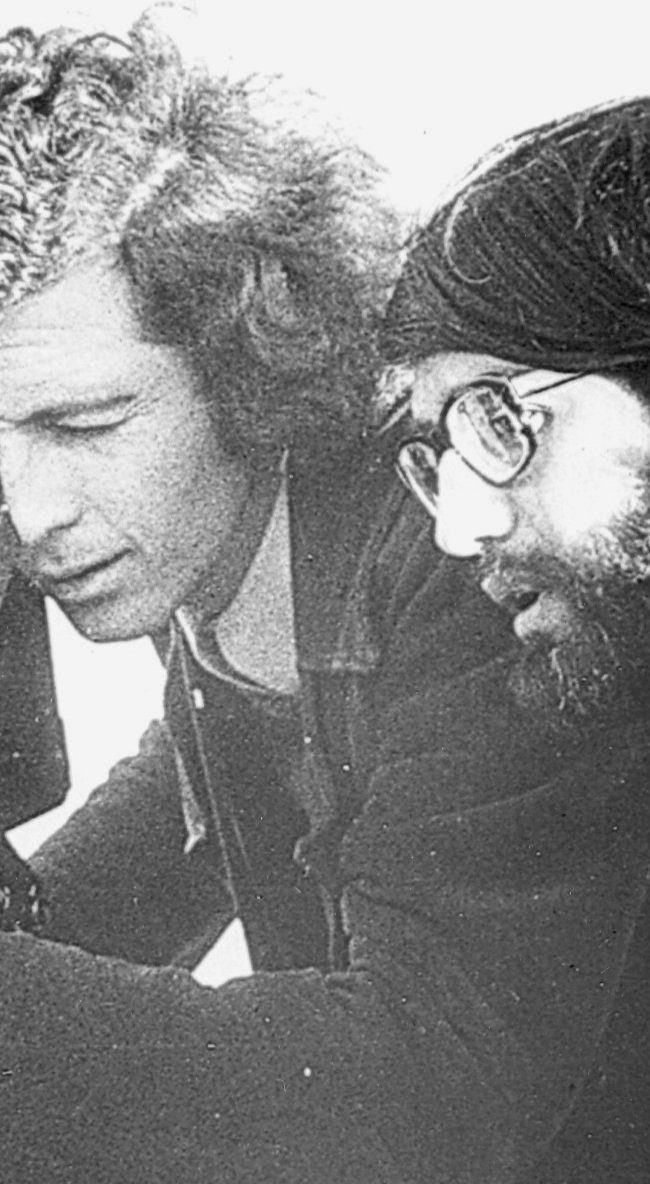Nick Toti’s “Digital Gods”- Season Two, Transmission Six (Part 3.2)
 (The following is the second half of Nick Toti’s interview with Megan Boyle and Tao Lin of MDMAfilms. Part one can be found here.)
(The following is the second half of Nick Toti’s interview with Megan Boyle and Tao Lin of MDMAfilms. Part one can be found here.)
Hammer to Nail: A lot of reviews of your movies that I’ve read compare the MDMAfilms project to the films of Andy Warhol. You also get (incorrectly, I’d argue) lumped in with the mumblecore “movement.” Did you have any conscious influences when making these movies? (These can be filmmakers/movies, but don’t feel like you have to limit yourselves. You can include writers, painters, whatever…)
Tao: Some of my favorite movies at the time were by Joe Swanberg, Andrew Bujalski, and other directions termed “mumblecore” by the media. I like how much dialogue those movies have, their humor and emotion, and their lack of melodrama and violence. I feel bored by what I’ve seen of Warhol’s movies.
Megan: I like the ideas behind Warhol films more than the actual “watchings-of” those films. Andrew Bujalski and Joe Swanberg were favorites of mine too, and the Duplass brothers. I think Tao was more interested in mumblecore movies than me. I had recently taken a History and Systems of Psychology class at the University of Baltimore, and felt inspired by Edward Titchener’s studies on introspection and the structure of the mind (an idea which now kind of bores me). I was surprised to learn the history of psychology was largely due to a few depressed individuals who looked intensely at themselves, and in that, created a system in which the problems of our lives were excitingly rather than hopelessly mysterious. But in 2010-2011 I viewed the problems of my life as hopelessly mysterious. I was excited by embracing the feelings of hopelessness I’d rejected for the first 25 years of my life, but at the core I was more perplexed than grateful of the side-effect of art increasing my interest in life.
HtN: Despite the (supposed) affectlessness that you project in these movies, they are incredibly personal. Most dramatically, the two of you decided to elope while making Mumblecore. What thoughts do you have regarding this blending of your private lives and public personas? Is this documentary or performance art?
TL: I think the affectlessness is a big misconception.
We decided to elope before making Mumblecore actually. The making of it into a movie happened later. I think partly why we were able to make the movies is because we were so comfortable being filmed all the time that we could act naturally, and live our lives, and make art out of it later. So, I think Mumblecore is a documentary. It’s like someone followed us around for many months, filming us, then edited it into a movie. Being filmed all the time, though, did motivate me to some degree, if only unconsciously, to “perform” more in life—that is, to talk and do more, instead of being silent and grim, as I can sometimes in life when there isn’t the added incentive of possibly transforming the life into art.
MB: I agree that affectlessness is a big misconception. I’m glad you see them as personal. It’s hard for me to think of something as both personal and affectless. I don’t think I viewed it as performance art, but I vaguely remember people calling it that, and thinking “okay, sure.” Because they happened organically and spontaneously, I’d be more inclined to call our movies documentaries. The idea of uniting a public and private persona isn’t just relegated to art, it’s really important, I think, to be psychologically healthy. Whether what motivates you is an example you see in art, or fiction, or nonfiction, or film, or a relationship, or whatever–it doesn’t really matter to me what it’s called, it matters that it happens.
HtN: Even more to the point: would you have gotten married if you hadn’t been documenting the event?
TL: I don’t know. Probably. We didn’t tell anyone we got married until weeks later I think, except our parents. And when we got married, we were busy filming Bebe Zeva. We were in Las Vegas to meet Bebe, our friend, and we were focused on making that movie. I don’t remember when we started thinking about Mumblecore as a movie.
MB: Definitely, for me, yeah. We had already been documenting most of our trip to Las Vegas, I don’t think filming it had anything to do with my motivation to do it. When I read Bed a few years prior to meeting Tao, when I was 21 or 22, I remember thinking “if I end up getting married, it’ll be to a person like this.”
HtN: Tao, you covered this same time period in your book Taipei. What are your thoughts/feelings regarding the different ways this time period is captured in different media?
TL: I like having both. We milked a lot of art out of those years.
HtN: Megan, you have a new book due to be published later this year. This (I think) is your first book since 2011’s selected unpublished blog posts of a mexican panda express employee. How does this new book connect to the MDMAfilms project?
MB: It’s the first book since then, yes. The book is called LIVEBLOG, it’s an autographical fiction experiment I did in 2013. I decided to use tumblr to liveblog everything I thought/felt/said/did with a vague hope that this would, if not negatively reinforce me to “act better,” at least force myself to create something. I got more instead of less depressed as the project progressed, and it ended with a suicide attempt.
Since then I’ve become really critical of this unchecked narrative of “the glamour” or at least “the tolerance” or indifference towards depression and substance abuse in art/writing. But that was because I was looking for the world to save me or something, still. I wanted something else to have the answer. We make all our own answers. The writers and artists I love, who have been depressed, knew that. I used to want to make stuff to say: look, here I am, this is how it was. But I wasn’t associating what I made with me in the present, and was hardly thinking about me in the future at all–I was so resigned to this kind of meaninglessness that I discredited the experiences that had given my life meaning. I’m much more hopeful about the the future now, and about the healing/transformative power of art. Because of that I think I’d go into any MDMAfilms project with healthy, rational optimism. Hopefully a little more lightheartedness too.

HtN: Have either of you undertaken other cinematic pursuits in the years since MDMAfilms?
TL: We’ve discussed making a fourth MDMAfilms film, where we send each other 0-3 minute clips, and reply to each other.
MB: I have a YouTube channel with 161 videos, which I started uploading while liveblogging in 2013. Since then I’ve used it twice as a platform for other self-improvement experiments which have been (and currently are/I started a new one about a month ago) more useful. Tao and I have talked about doing a fourth MDMAfilms movie filmed on our phones.
HtN: For what it’s worth, I think you should definitely make this fourth movie. (Then you should wait another seven years and make a shot-for-shot remake of it with Bebe Zeva playing every character.) Final question: Are there any plans to make the three existing MDMAfilms available for people to see?
TL: Thank you for the encouragement. I like the Bebe Zeva idea. Mumblecore is on Youtube and I feel satisfied with that.
MB: Thanks. It would be interesting to transcribe the script of Bebe Zeva and get all of us to act it out shot-for-shot someday. Maybe when we’re all really old. I’m satisfied with Mumblecoire being on YouTube too, for now. If people are interested in watching the other two films they can email [email protected] for links/passwords.
– Nick Toti (@NickTotiis)











